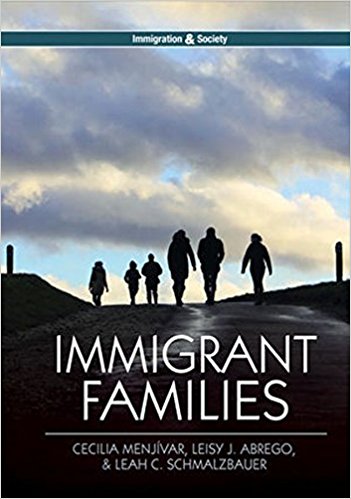
Smith-Buonanno, Room 106, 95 Cushing Street, Providence, RI 02912
Undocumented Latino immigrants envision their futures here. Current policies, however, restrict their ability to thrive. Without legalization, they are hindered in their use of the very mechanisms that ensured economic mobility for other immigrants throughout U.S. history: jobs, education, and social services. To this end, one sector of the undocumented immigrant population—the 1.5 generation (often called DREAMers)—has witnessed the benefits of collective mobilization. After a savvy national social media campaign, highly publicized civil disobedience acts, and a sustained barrage of well-articulated demands, the social movement led by undocumented 1.5 generation immigrants saw results: On June 15, 2012, President Obama signed Deferred Action for Childhood Arrivals, providing temporary relief from deportation to certain undocumented immigrants who came to the country as children. My talk will explore how DACA recipients and their families experienced, interpreted, and applied lessons from mass mobilizations. While international migration scholars often focus on educational and occupational integration, I argue that political claims-making, too, is a form of immigrant integration not often captured in mainstream discussions of immigrant assimilation.
Speaker
Leisy J. Abrego is Associate Professor in Chicana/o Studies at UCLA. She is a member of the first large wave of Salvadoran immigrants who arrived in Los Angeles in the early 1980s. Her research and teaching interests—inspired in great part by her family’s experiences—are in Central American immigration, Latina/o families, the inequalities created by gender, and the production of “illegality” through U.S. immigration laws. Her award-winning first book, Sacrificing Families: Navigating Laws, Labor, and Love Across Borders (Stanford University Press, 2014), examines the well-being of Salvadoran immigrants and their families—both in the United States and in El Salvador—as these are shaped by immigration policies and gendered expectations. Her early research examines how immigration and educational policies shape the educational trajectories of undocumented students. Her second book, Immigrant Families (Polity Press, 2016), is co-authored with Cecilia Menjívar and Leah Schmalzbauer and delves deeply into the structural conditions contextualizing the diverse experiences of contemporary immigrant families in the United States. More recently, Abrego has been writing about how different subsectors of Latino immigrants internalize immigration policies differently and how this shapes their willingness to make claims in the United States. Her current project examines the day-to-day lives of mixed-status families after DACA. Her scholarship analyzing legal consciousness, illegality, and legal violence has garnered numerous national awards. She also dedicates much of her time to supporting and advocating for refugees and immigrants by writing editorials and pro-bono expert declarations in asylum cases.
Series Information
The Critical Migration and Refugee Studies Series dynamically considers the crucial issues of racial, ethnicity and migration in the contexts of displacement. A CSREA Faculty Grant Event organized by Kevin Escudero, Assistant Professor of American Studies. This series is supported by the Middle East Studies Program, the U.S. Latino Studies Fund, the Center for Latin American and Caribbean Studies, the Department of Sociology, and the Department of Africana Studies.
